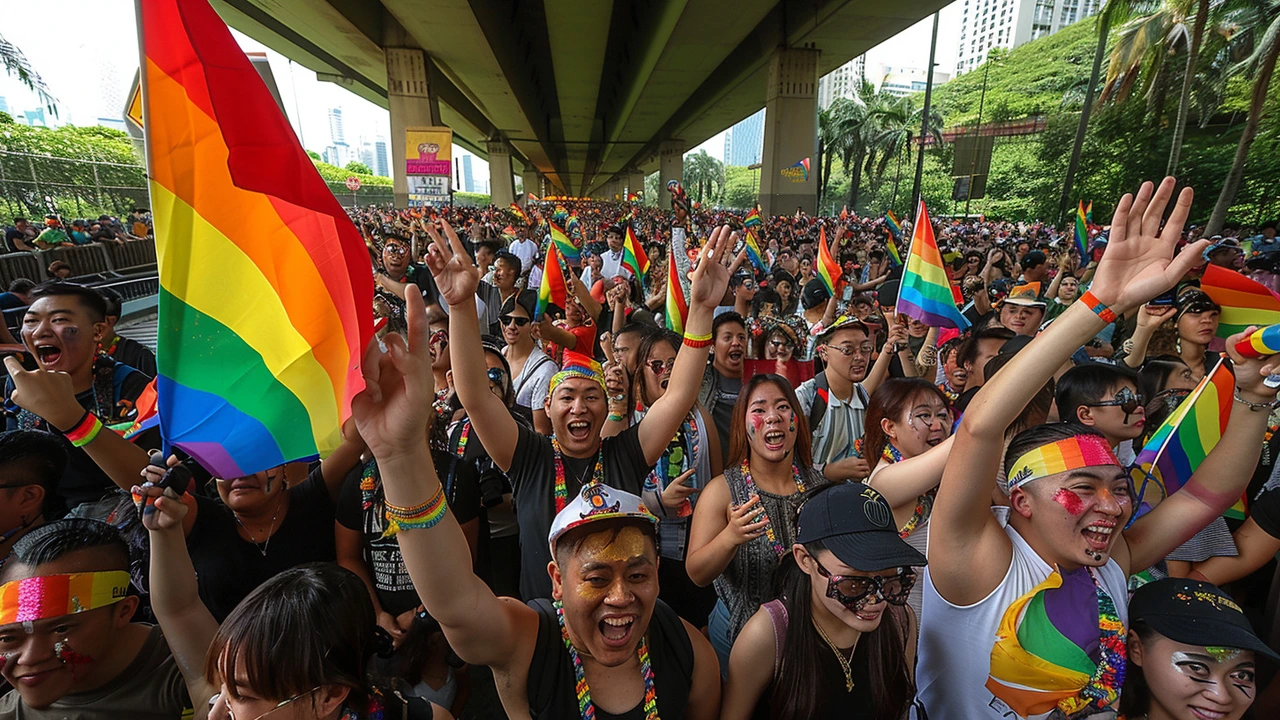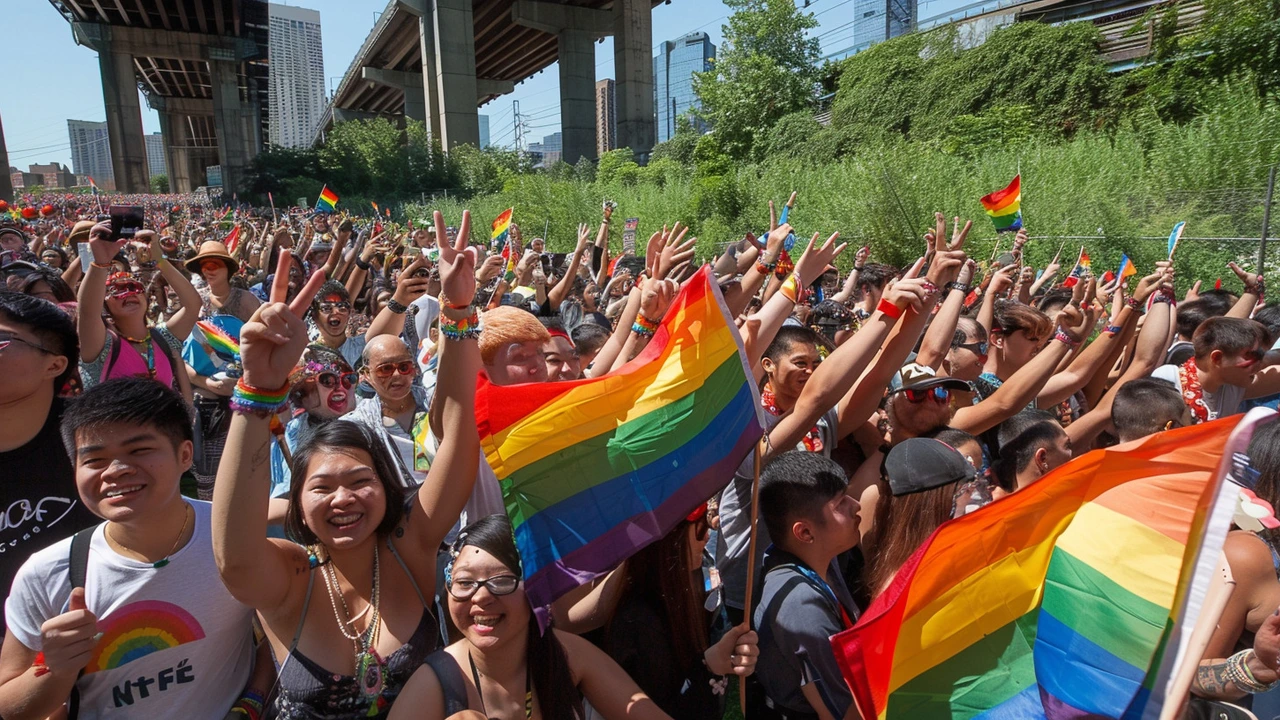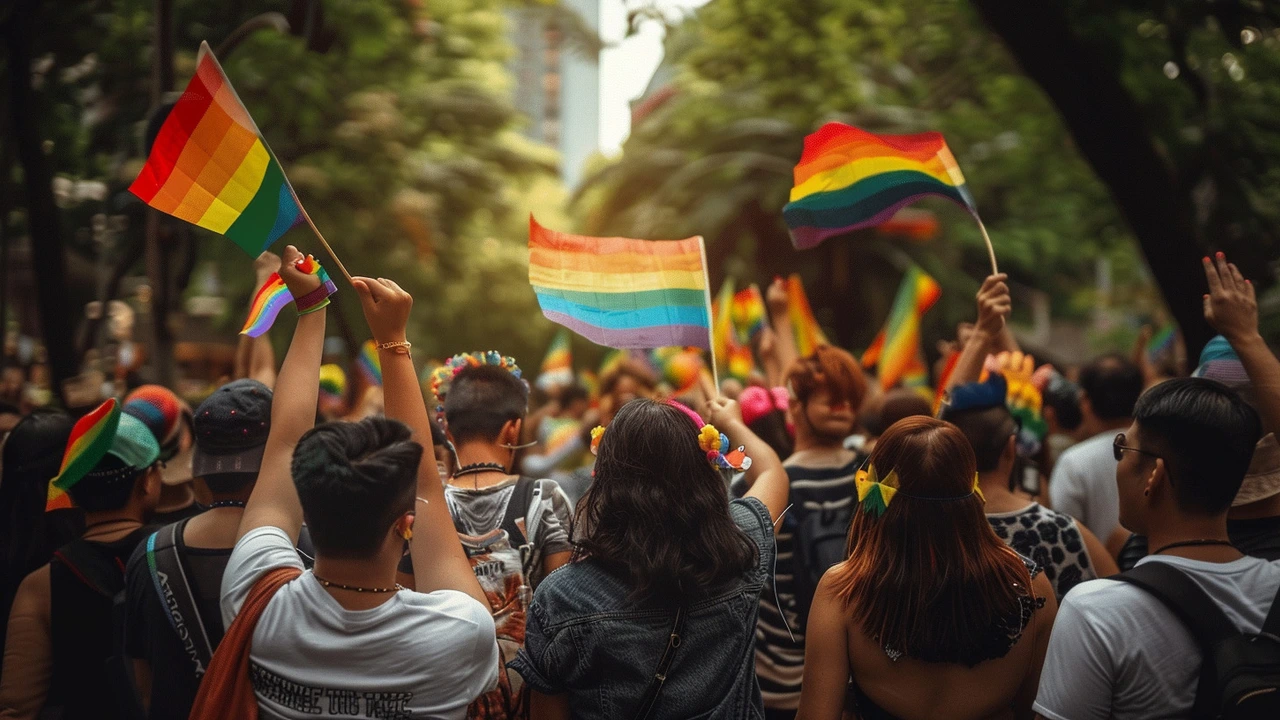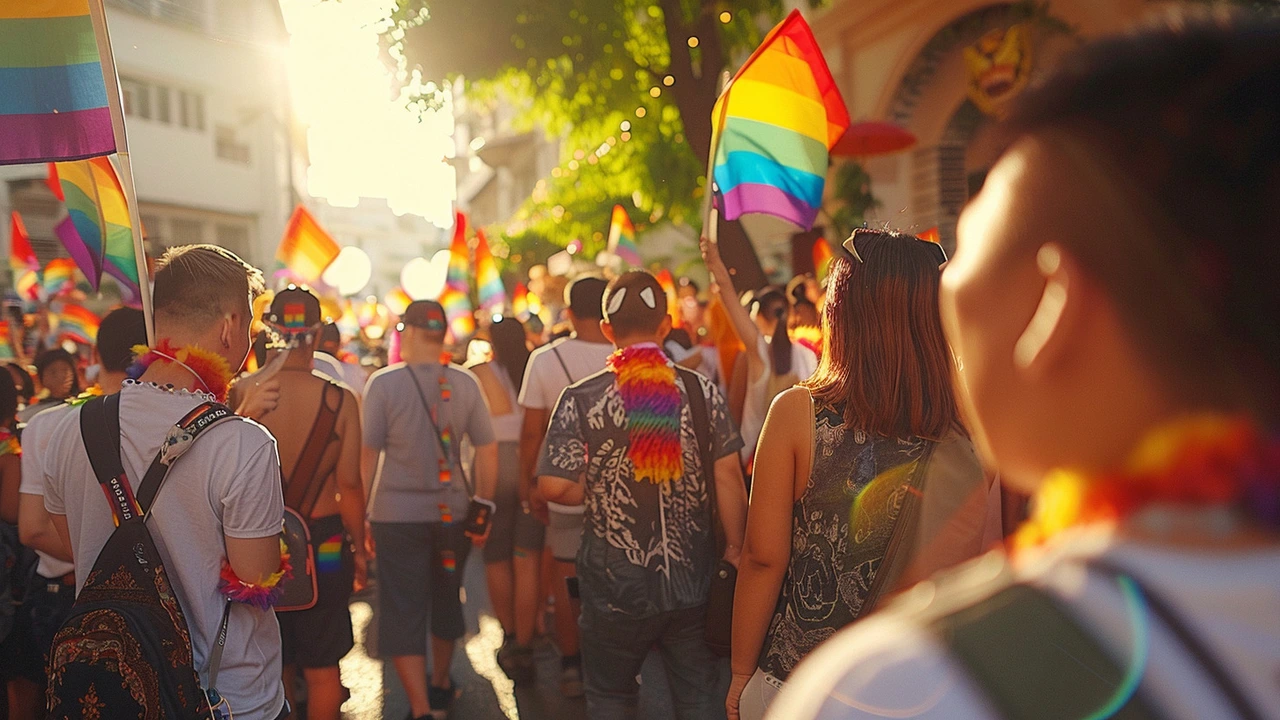The Significance of Pride Month
Every June, millions of people around the world come together to celebrate Pride Month, a time dedicated to honoring the history, diversity, and ongoing struggles of the LGBTQ+ community. The rainbow flag, a symbol of inclusion and diversity, waves proudly in parades and events across the globe. Behind the vibrant scenes, Pride Month serves as a testament to a community that has faced significant challenges and continues to fight for equality and acceptance.
Pride Month is not only about flamboyant parades and colorful outfits. It is a time of reflection, activism, and unity. It highlights the importance of recognizing and celebrating diverse identities while acknowledging the hard-fought battles that have led to the progress seen today. The roots of this celebration are deeply intertwined with a critical moment in LGBTQ+ history: the 1969 Stonewall riots.
The Stonewall Riots: A Pivotal Moment
In the early hours of June 28, 1969, the police raided the Stonewall Inn, a popular gay bar in New York City's Greenwich Village. Such raids were not uncommon; during that period, it was customary for law enforcement to crack down on establishments that catered to LGBTQ+ patrons. What set this event apart was the community's response. Instead of dispersing, the patrons of Stonewall Inn and neighborhood residents fought back. This spontaneous rebellion marked the beginning of an organized effort to demand civil rights for LGBTQ+ individuals.
The Stonewall riots were not the first instance of LGBTQ+ resistance, but they were undoubtedly one of the most influential. Leading figures such as Storme Delarverie, Sylvia Rivera, and Marsha P. Johnson emerged as crucial voices in the fight for equality. These individuals, often credited as pioneers, were instrumental in galvanizing the community's efforts to push for social and political changes.
- Storme Delarverie: Known for being a key figure during the Stonewall riots, Delarverie is often referred to as the person who 'threw the first punch.'
- Sylvia Rivera: An ardent advocate for transgender rights and social justice, Rivera played a significant role in organizing protests and creating safe spaces for LGBTQ+ individuals.
- Marsha P. Johnson: Fondly known as the 'Mayor of Christopher Street,' Johnson was a prominent activist and drag performer whose efforts helped shape the early gay rights movement.

The Birth of Pride Marches
In the wake of the Stonewall riots, activists recognized the need for greater visibility and unity. On the first anniversary of the riots, communities in New York City, Los Angeles, and San Francisco organized the first Pride marches. These marches were not merely celebrations; they were powerful statements demanding civil rights, acceptance, and recognition for LGBTQ+ individuals. The participants, buoyed by the spirit of resilience, marched with banners, flags, and slogans that called for an end to discrimination and injustices faced by their community.
The Pride marches of 1970 set the stage for a global movement. Over the years, what started as small, localized events grew into large-scale celebrations involving millions of participants worldwide. Each year, cities across the globe host a series of events ranging from parades and festivals to educational seminars and community activities, all designed to celebrate LGBTQ+ identities and promote inclusivity.
Evolution and Global Impact
Pride Month has seen significant evolution since its inception. Initially centered around the United States, the celebration has expanded its reach, becoming a global phenomenon. From São Paulo to Sydney, Pride events symbolize unity, resilience, and the ongoing fight for equality. In many countries, Pride marches also serve as platforms to address contemporary issues facing the LGBTQ+ community, including legal rights, healthcare access, and social acceptance.
Despite the celebratory atmosphere, it is crucial to remember that many LGBTQ+ individuals continue to face severe challenges. In several parts of the world, homosexuality remains illegal, and discrimination is rampant. Thus, Pride Month is a blend of festivity and activism—it is a time to celebrate past achievements while rallying for future progress.

Modern-Day Pride: Challenges and Triumphs
While significant strides have been made in the fight for LGBTQ+ rights, the journey is far from over. Legal recognition of same-sex marriage, anti-discrimination laws, and societal acceptance have advanced remarkably in some countries, but there are still numerous hurdles to overcome. Hate crimes, transgender rights issues, and healthcare discrimination are persistent issues affecting the LGBTQ+ community.
Pride Month continues to play a pivotal role in addressing these challenges. Advocacy groups and community organizations use the platform to raise awareness, educate the public, and lobby for policy changes. Through workshops, panels, and public demonstrations, activists highlight the ongoing struggles and emphasize the importance of allyship and support from the broader society.
The Role of Allies in the Pride Movement
Allies—individuals who support LGBTQ+ rights despite not being part of the community themselves—play a crucial role in the Pride movement. Their support can amplify voices, create inclusive environments, and drive policy changes. Being an ally involves more than just participation in Pride events; it requires active learning, awareness, and advocacy.
By educating themselves about the issues facing the LGBTQ+ community, allies can better understand the systemic challenges and contribute to meaningful change. Simple actions, such as calling out discriminatory behavior, supporting LGBTQ+-owned businesses, and advocating for inclusive policies in workplaces and schools, can have profound impacts.

Looking Forward: The Future of Pride
As we look toward the future, Pride Month will undoubtedly continue to evolve. The essence of Pride—a celebration of identity, resilience, and the fight for equality—will remain at its core. However, the ways in which it is celebrated may transform with changing societal contexts and technological advancements.
Virtual Pride events, which gained prominence during the COVID-19 pandemic, have shown the potential for broader and more inclusive participation. These online platforms allow individuals from regions with restrictive laws or societal attitudes to partake in Pride celebrations safely. The digital space also provides innovative ways to connect, educate, and organize on a global scale.
In conclusion, Pride Month is a vibrant, multifaceted celebration with profound historical significance. It is a testament to the resilience and courage of the LGBTQ+ community, commemorating past struggles while advocating for a more inclusive and equitable future. As we wave our rainbow flags and join the festivities, let us remember the pioneers of the movement and the ongoing fight for rights and recognition. Pride is more than a month-long celebration; it's a continuous journey toward a world where everyone can live authentically and without fear.


 Sports
Sports
Pierce Smith
June 1, 2024 AT 18:40The Stonewall riots stand as a watershed in the struggle for LGBTQ+ rights, marking the point where passive endurance gave way to active resistance.
It is essential to recognize that the courage displayed that night was not an isolated act but part of a broader continuum of dissent against oppression.
By confronting police brutality, the patrons of the Stonewall Inn laid the groundwork for organized advocacy that would later manifest in Pride marches worldwide.
Their bravery reminds us that change often begins with the willingness to challenge unjust authority, even in the face of personal risk.
As we commemorate Pride Month, we should honor these pioneers while also reaffirming our commitment to advancing equality for all members of the community.
Abhishek Singh
June 1, 2024 AT 19:40Another parade? How groundbreaking
hg gay
June 1, 2024 AT 21:26Reading through this piece really brings home how far the movement has traveled since those turbulent nights in 1969 😌
It’s humbling to think that the boldness of a few individuals sparked a global conversation about love, identity, and human rights 🌈
When we celebrate Pride, we’re not just waving flags; we’re echoing the voices of Stormé, Sylvia, and Marsha who demanded to be seen and heard.
Their stories remind us that progress is often messy, full of setbacks, but always fueled by resilient spirits.
Today’s Pride events, whether in bustling downtown streets or quiet online spaces, continue that legacy by creating safe havens for people to express themselves authentically.
It’s also a moment to acknowledge that many still face legal persecution, social ostracism, and even violence simply for existing 🌍
Allyship, therefore, isn’t a passive label; it’s an active commitment to stand up against discrimination wherever it appears.
From supporting LGBTQ+-owned businesses to challenging hateful rhetoric, each small act contributes to a larger wave of acceptance.
Educational workshops and panels during Pride months help demystify misconceptions and foster empathy across diverse audiences.
Virtual Pride, which blossomed during the pandemic, has opened doors for those in restrictive regions to safely join the celebration without fear of reprisal 📱
Technology thus becomes a bridge, connecting activists across continents and amplifying marginalized voices.
It’s inspiring to see younger generations harnessing social media to lobby for policy changes and share personal narratives with global reach.
Yet, we must remain vigilant; victories can be fragile, and backlash often follows moments of progress.
By staying informed, engaged, and supportive, we help safeguard the hard‑won rights of the community.
So as we march, dance, or log in from our living rooms, let’s remember that the fight for equality is ongoing, and every contribution matters 💪
Here’s to a future where Pride isn’t just a month, but a perpetual celebration of humanity’s beautiful diversity.
Owen Covach
June 1, 2024 AT 22:26Stonewall’s echo still reverberates, a kaleidoscope of defiance and hope.
Vivid banners flutter, each hue a whispered oath to freedom.
We ride this tidal wave of color, unshackled by caution.
Pauline HERT
June 2, 2024 AT 00:13While the narrative celebrates progress, it’s vital to keep an eye on the ongoing battles that many still endure.
The fight isn’t just historical; it’s a present‑day reality for countless individuals across the globe.
We must push beyond symbolic gestures and demand concrete legislative protections.
Only then can the spirit of Stonewall translate into lasting security for every member of the community.
Let’s channel that same fire into actionable change.